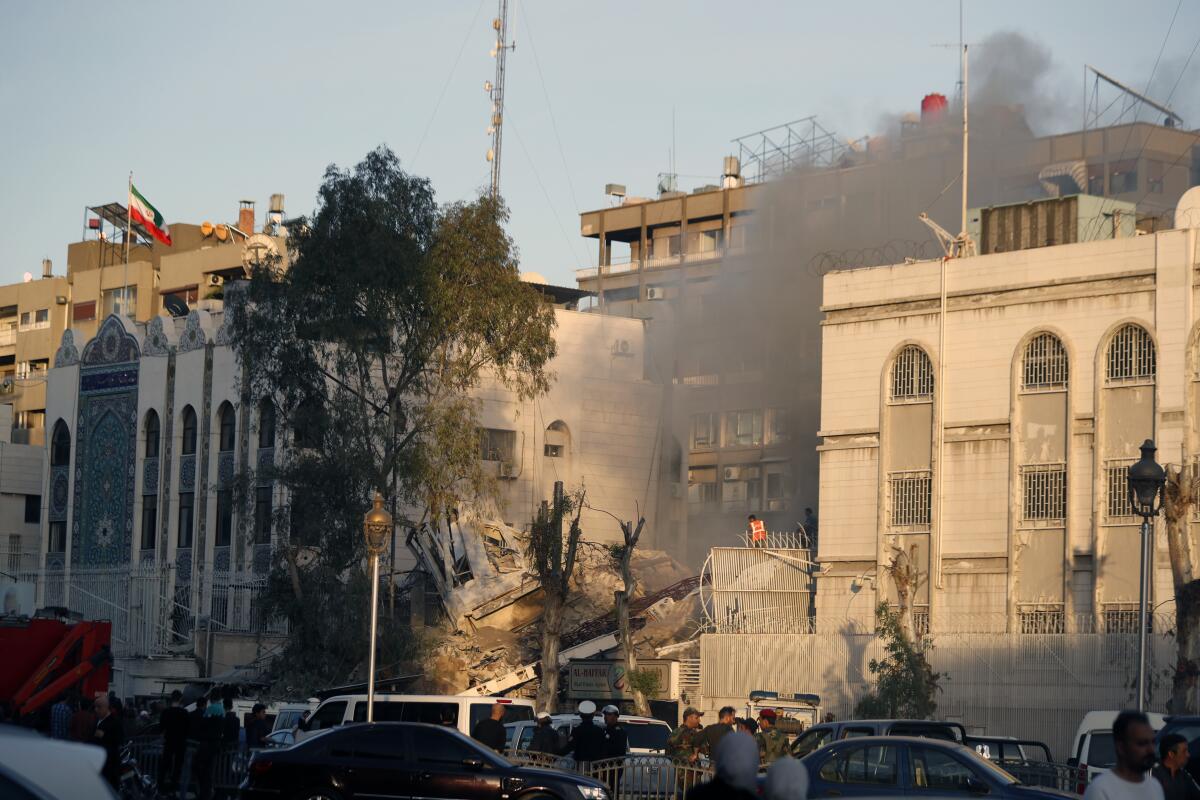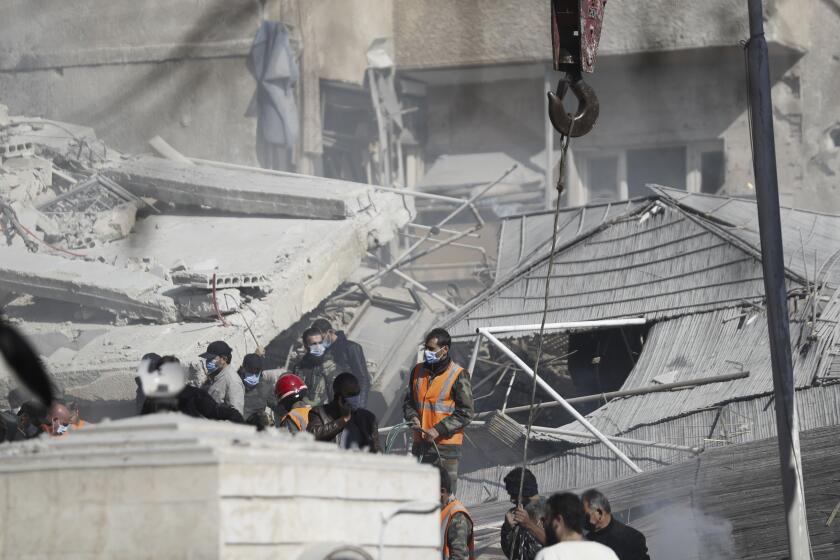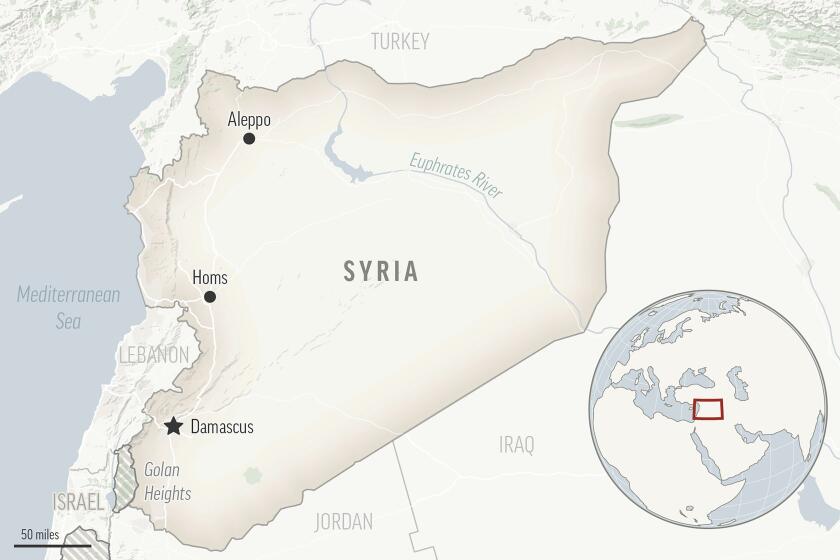Israeli airstrike demolishes Iranian Consulate in Syria, kills two Iranian generals

DAMASCUS, Syria — An Israeli airstrike demolished the Iranian Consulate in Syria on Monday, killing two Iranian generals and five officers, according to Syrian and Iranian officials.
The strike appeared to signify an escalation of Israel’s targeting of military officials from Iran, which provides money and weapons to Hamas and other militants responsible for the Oct. 7 attack against Israel.
Since the war in Gaza began nearly six months ago, clashes have also increased between Israel and Hezbollah — another militant group supported by Iran — along Israel’s northern border with Lebanon.
Israel, which rarely acknowledges such strikes, said it had no comment on the latest attack in Syria, although a military spokesman blamed Iran for a drone attack early Monday against a naval base in southern Israel.
The airstrike in Syria killed Gen. Ali Reza Zahdi, who led the elite Quds Force in Lebanon and Syria until 2016, according to Iran’s Islamic Revolutionary Guard. It also killed Zahdi’s deputy, Gen. Mohammad Hadi Hajrahimi, and five other officers.
Syrian state media and an Iranian media outlet say an Israeli strike on Damascus killed a commander of Tehran’s Revolutionary Guard’s expeditionary Quds Force.
A member of Hezbollah, Hussein Youssef, also was killed in the attack, a spokesperson for the militant group told the Associated Press. The spokesperson spoke on condition of anonymity in line with the group’s rules.
Two police officers who guarded the consulate were among those wounded, and first responders were still searching for bodies under the rubble.
While Iran’s consular building was leveled in the attack, according to Syria’s state news agency, its main embassy building remained intact. Still, the Iranian ambassador’s residence was inside the consular building.
Iran’s ambassador, Hossein Akbari, vowed revenge for the strike “at the same magnitude and harshness.”
Hamas and Islamic Jihad — another Palestinian militant group backed by Iran — accused Israel of seeking to widen the conflict in Gaza.
Experts said there was no doubt that Iran would retaliate. The strike in Syria was a “major escalation,” Charles Lister, a Syria expert at the Middle East Institute in Washington, said on the social media platform X.
A spokesman for Iran’s foreign ministry, Nasser Kanaani, called on other countries to condemn the strike.
The Syrian army reports Israeli airstrikes near the northern city of Aleppo. A war monitor group said missile depots for Lebanon’s militant Hezbollah group were hit.
Israel has carried out hundreds of strikes on targets in government-controlled parts of Syria in recent years.
Such airstrikes have escalated since the start of the war between Israel and Hamas.
Though it rarely acknowledges its actions in Syria, Israel has said it targets bases of Iran-allied militant groups such as Hezbollah, which has sent thousands of fighters to support Syrian President Bashar Assad’s forces.
An Israeli airstrike in a Damascus neighborhood in December killed a longtime advisor of the Iranian paramilitary Revolutionary Guard in Syria, Razi Mousavi.
A similar strike on a building in Damascus in January killed at least five Iranian advisors. Last week, airstrikes over the strategic eastern Syrian province of Dair Alzour near the Iraqi border killed an Iranian advisor.
The chief spokesman for Israel’s army, Rear Adm. Daniel Hagari, said that the drone attack on a naval base in southern Israel “directed by Iran” caused no injuries. The army said it caused only minor damage.
Chehayeb and Aji write for the Associated Press. Chehayeb reported from Beirut. AP writer Nasser Karimi in Tehran and Ellen Knickmeyer in Washington contributed to this report.
More to Read
Sign up for Essential California
The most important California stories and recommendations in your inbox every morning.
You may occasionally receive promotional content from the Los Angeles Times.












